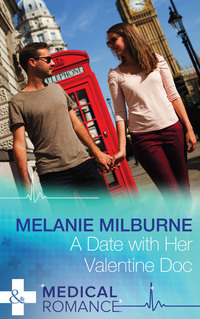Sadece Litres'te okuyun
Kitap dosya olarak indirilemez ancak uygulamamız üzerinden veya online olarak web sitemizden okunabilir.
Kitabı oku: «A Date with Her Valentine Doc», sayfa 2
Bir şeyler ters gitti, lütfen daha sonra tekrar deneyin
₺179,81
Serideki Birinci kitap "A Valentine to Remember"


